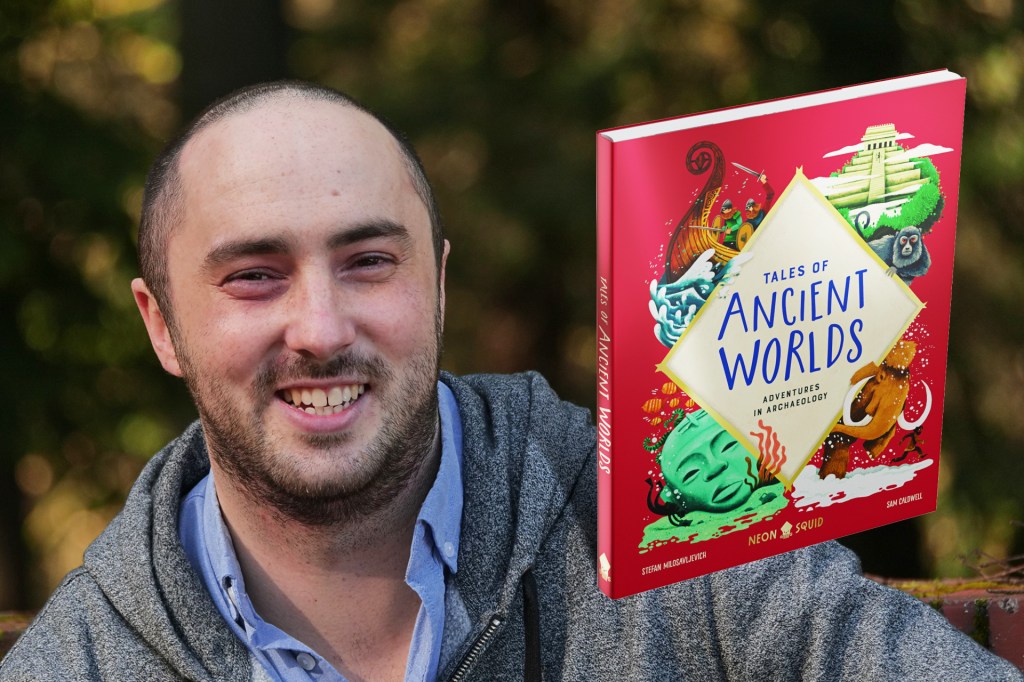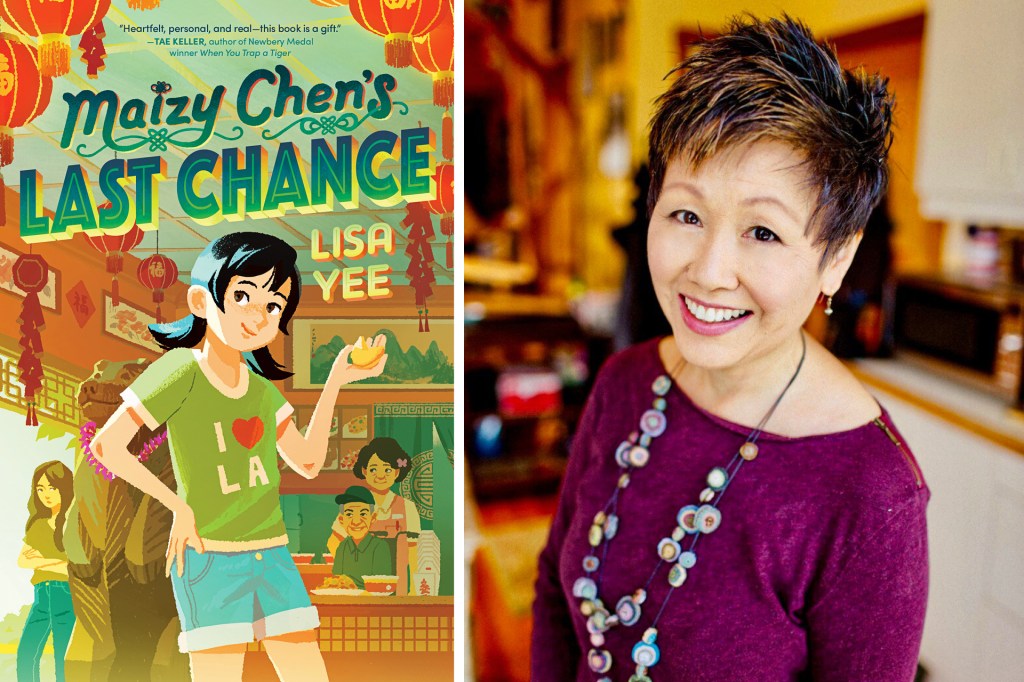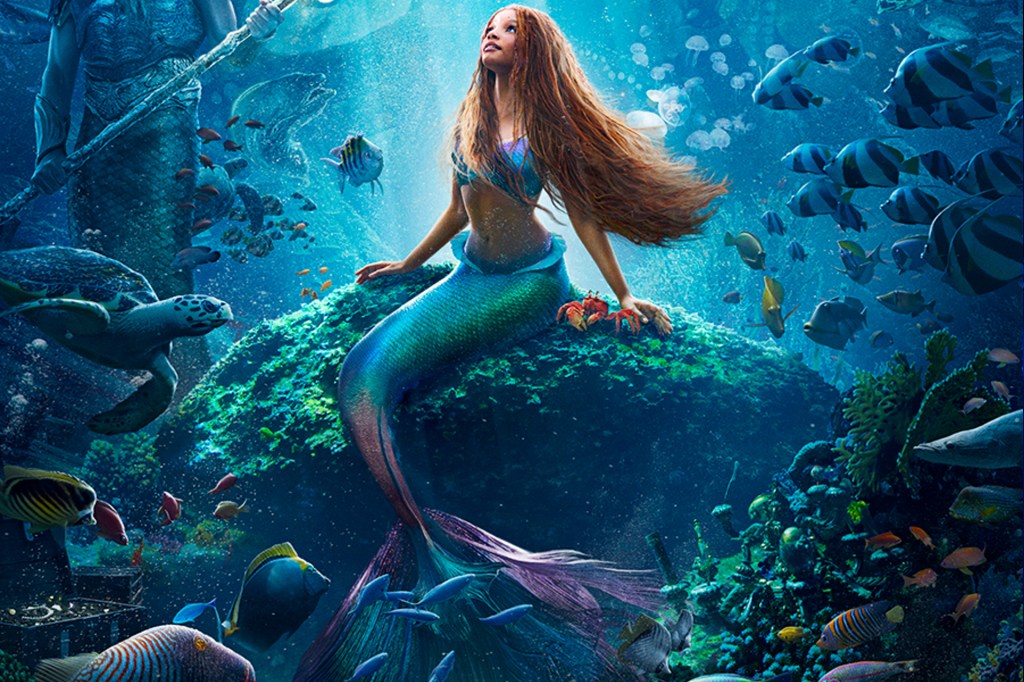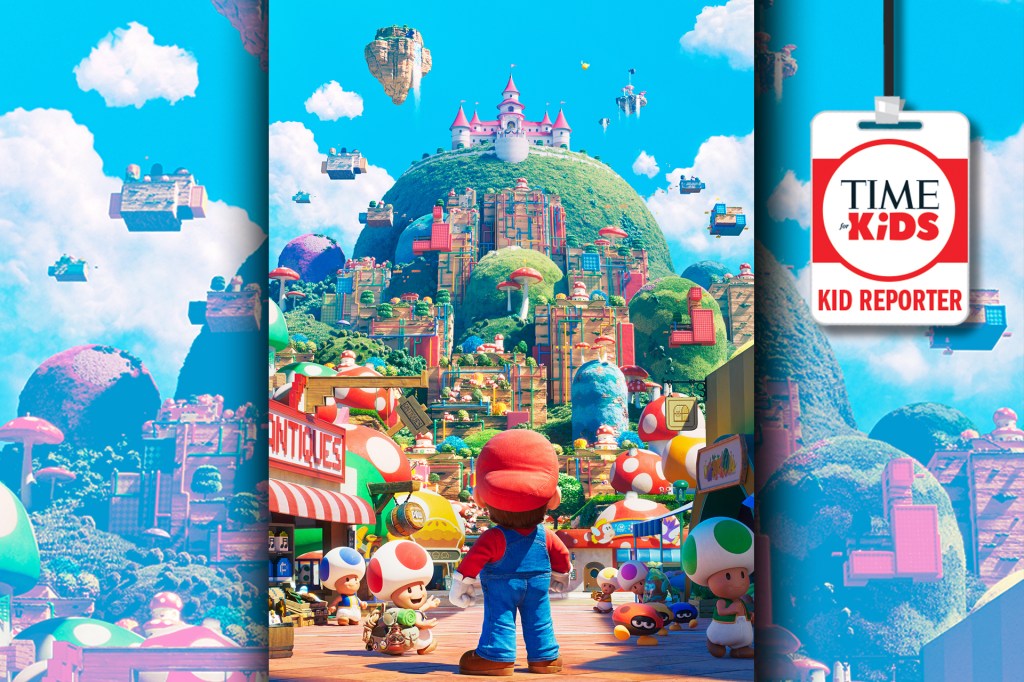
Shipwrecks. Buried treasure. The discovery of King Tut’s tomb. These are some of the subjects Stefan Milosavljevich explores in Tales of Ancient Worlds: Adventures in Archaeology, out in April. He spoke with TFK Kid Reporter David Murtagh.
For kids who might not have studied archaeology in school, what is it?
Archaeology is the study of all the stuff we leave behind. If we’re trying to reconstruct history, we have two sources of information. One is the stuff that people wrote down. The other is all the stuff we make, or drop, even our own bodies, or the waste we get rid of. That’s what archaeologists study.
This book covers many historical periods. What’s your favorite?
I do really love the Stone Age. I think it’s so interesting to go back to our earliest time.
What inspired you to write this book?
I wanted to share the biggest passion in my life. When I was your age, I was surrounded by history. You know King John from Robin Hood? He was buried in my hometown. Every week, I would go and see dead King John. Those sorts of things just always connected me with history. There are so many great stories I want to share.
Have technological and scientific advances changed how archaeologists work?
Technology has changed archaeology so much. Now archaeologists can get a sample of dirt and test it for human DNA. When we test, say, a tooth for human DNA, we actually destroy the tooth. That was our one shot at trying to understand the past. But with dirt, there’s loads of it. We could destroy it all day! It’s going to give us much more flexibility to study the past. By the time you’re my age, David, they’ll be testing everything for DNA. It’s going to tell us so much.
What advice do you have for someone interested in archaeology?
Stay curious and keep your eyes open for opportunities in your local area. There are lots of ways you can help with excavations or preserving things in museums.
Writing a book is tough. What was the silver lining for you?
I tried to absolutely cram the book with little nuggets of information from history. When people like you read and enjoy the book, that’s the silver lining.
This interview has been edited for length and clarity.













